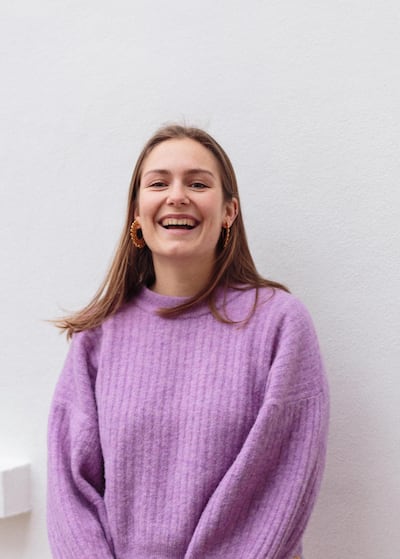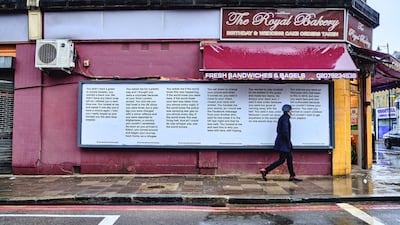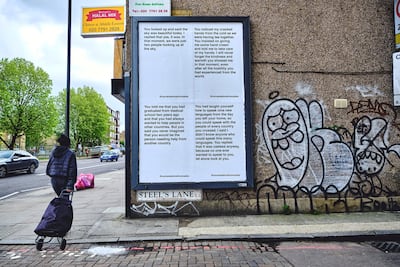“You told me you were going to try to get to England tonight. You were silent for a moment, then you said that you came here to live, not to die. You asked if there was anywhere in the world where they would not try to kill you. I couldn’t answer.”
A snippet of a conversation between a migrant in Calais and a volunteer worker has become part of a powerful art project called Conversations From Calais.
Billboards across the UK, in cities including London, Manchester, Cardiff and Edinburgh, carry the words of those trying to get to Britain.
Citing lives blighted by poverty, famine, conflict and persecution, the project aims to humanise the refugee crisis. The woman behind Conversations From Calais is French-Italian graphic designer Mathilda Della Torre.
“You told me you had graduated from medical school two years ago and that you had always wanted to help people in other countries. But you said you never imagined you would be the person needing help from another country,” reads one excerpt.
More than 3,500 people have embarked on the perilous journey across the English Channel so far this year. During the last weekend of May, 568 people made the crossing, the UK Home Office said. Another six boats were discovered carrying 132 people on Tuesday, June 1.
Exasperated by the way refugees were portrayed in mainstream media and by UK politicians, Ms Della Torre launched the project.
A hostile climate on migration has dominated in the UK, where Home Secretary Priti Patel announced reforms aimed at curbing attempts to illegally cross the English Channel.
Among the number of controversial ideas put forward by the Home Office to prevent migrant arrivals via the Channel was a “giant wave machine” to push boats back into French waters.
What started as one woman's mission to post excerpts in and around Dover and London detailing conversations with migrants has now grown into a worldwide endeavour.
The project includes discussions had by many volunteers, typed out in 12 languages and pasted on walls in 60 cities across five continents.
The work hit the billboards in collaboration with Buildhollywood, a company that specialises in creative street advertising.
"This project feels really necessary at the moment due to the direction the UK Home Office is going in, in terms of the narrative around increasing border control and making the environment here more hostile in terms of deportations and process of asylum," Della Torre told The National from her home in London.
“The Home Office very much sells the situation as ‘we need to create legal and safe routes’, but it is not understanding that people will continue to risk their lives no matter what. It just means people are taking more and more risks that are dangerous and life-threatening.”
On Monday, police confirmed a body found on Norway’s coast earlier in the year was that of 15-month-old Artin, a Kurdish-Iranian refugee who had been attempting to reach the UK from France in October with his family. Four members of Artin's family also died.
Last year, a record 8,420 people crossed the English Channel in small boats.
There has also been an increase in the number of unaccompanied young women and girls coming into the country through this route, Dover MP Natalie Elphicke said.
“And that is worrying because they're coming in from what are known to be the Eritrean and Vietnamese routes that are closely associated with modern slavery and sex trafficking,” she said.
Conversations From Calais’s Instagram page now has almost 30,000 followers, but Ms Della Torre says she is not naive of the need to keep reaching new audiences.

“We have a social media presence but I’m very aware it’s an echo chamber that I’ve created. That’s why I continue to paste posters on the street and why I thought the use of billboards would be really impactful,” she said.
Seeing the first billboard felt like a huge milestone.
“It was very humbling. I had a map of the billboard locations in London but I didn’t know when they were going to be put up. I knew there was one near to my new place, and when I was walking back there with my parents I saw it and couldn’t believe it. I cried while standing on the street,” she said.
Her next focus is to work with schools and universities – something she started to explore at the start of the Covid-19 crisis.
“This project is a way for people to easily digest a very serious topic – it is a first step to a better understanding."


